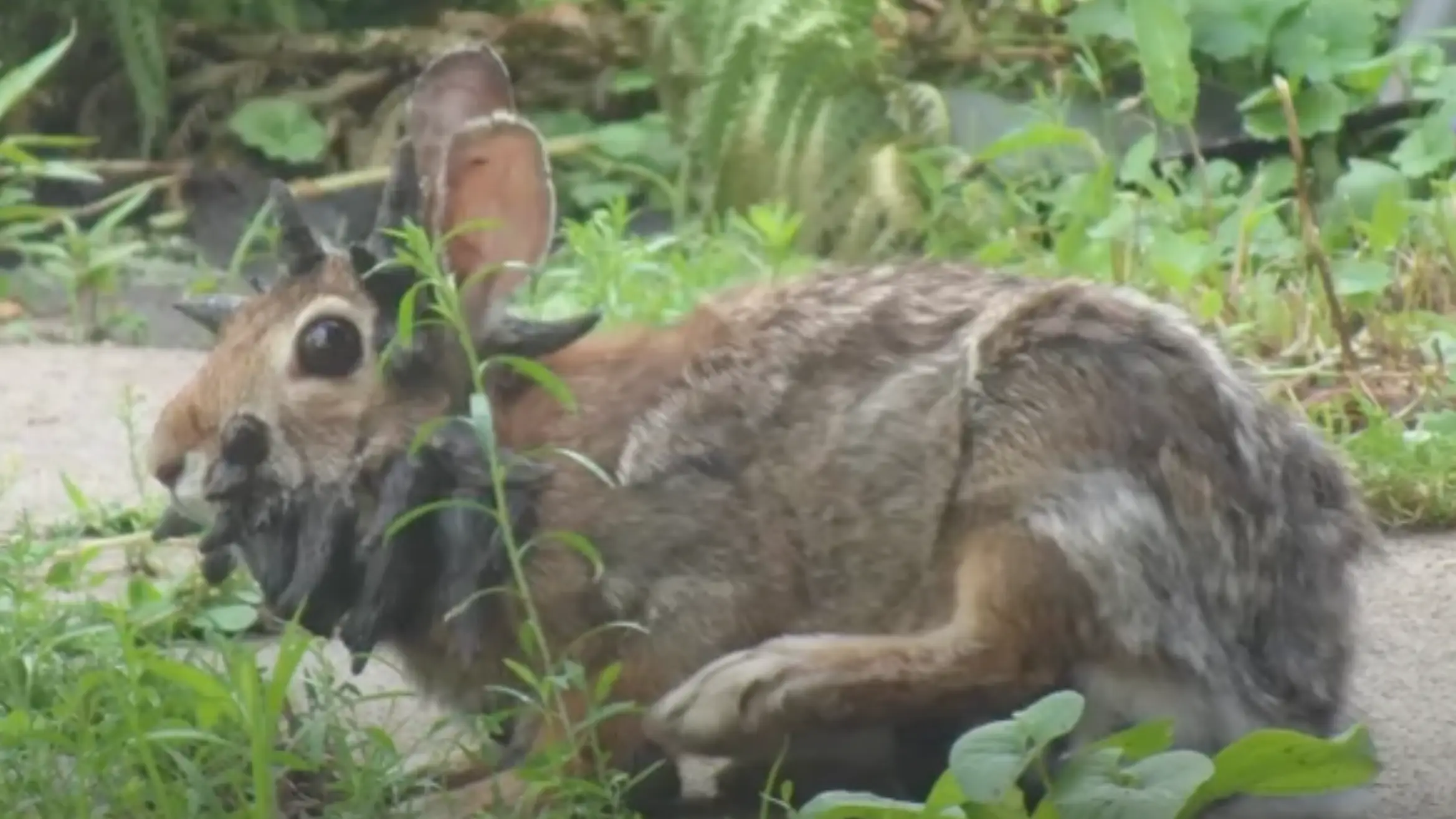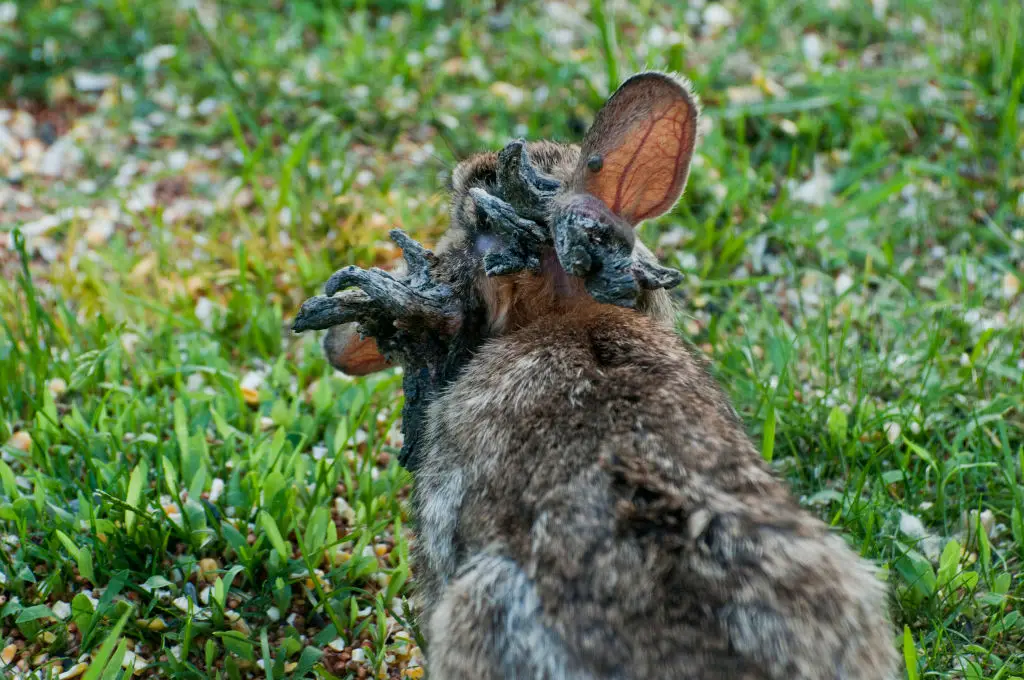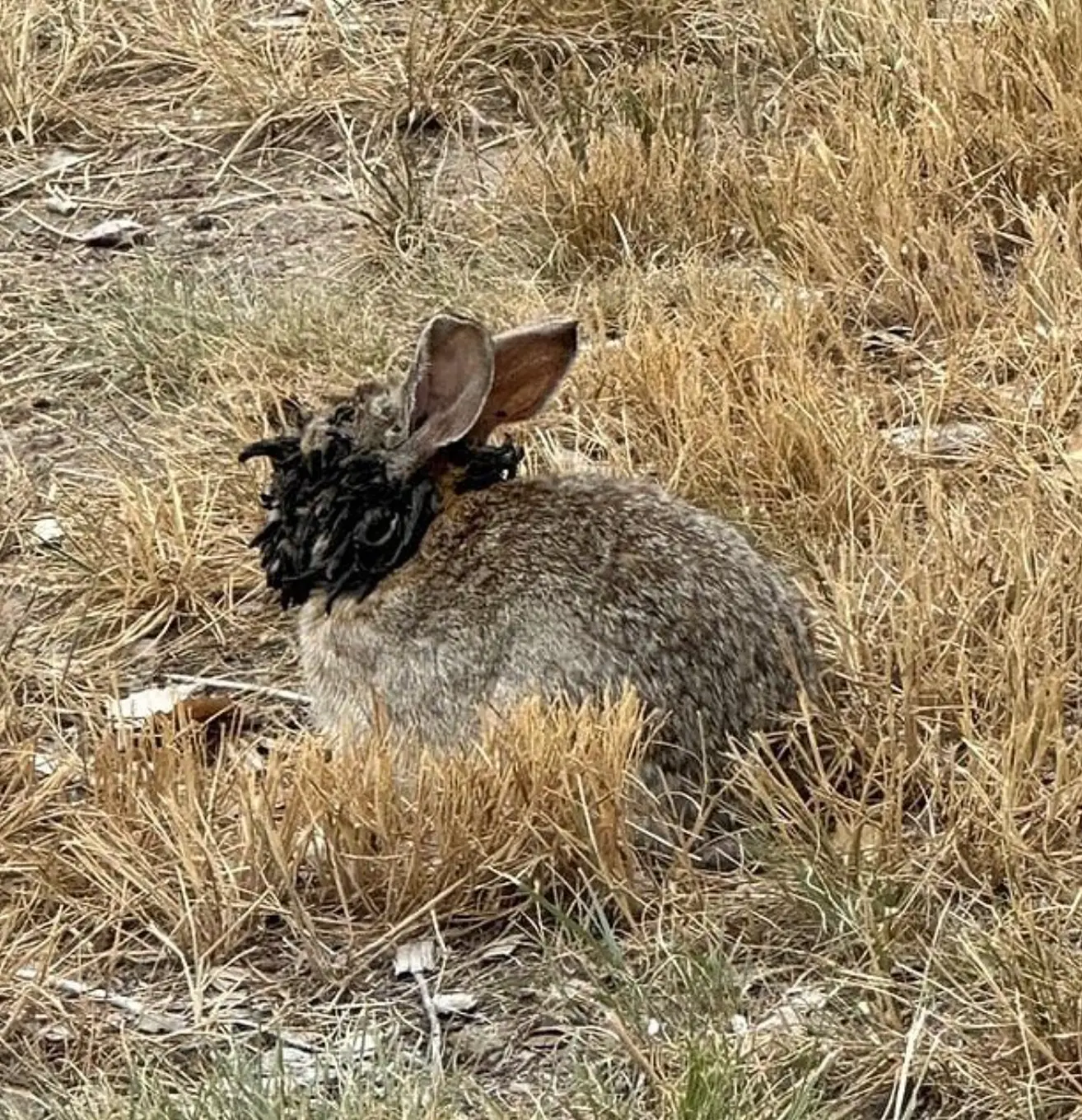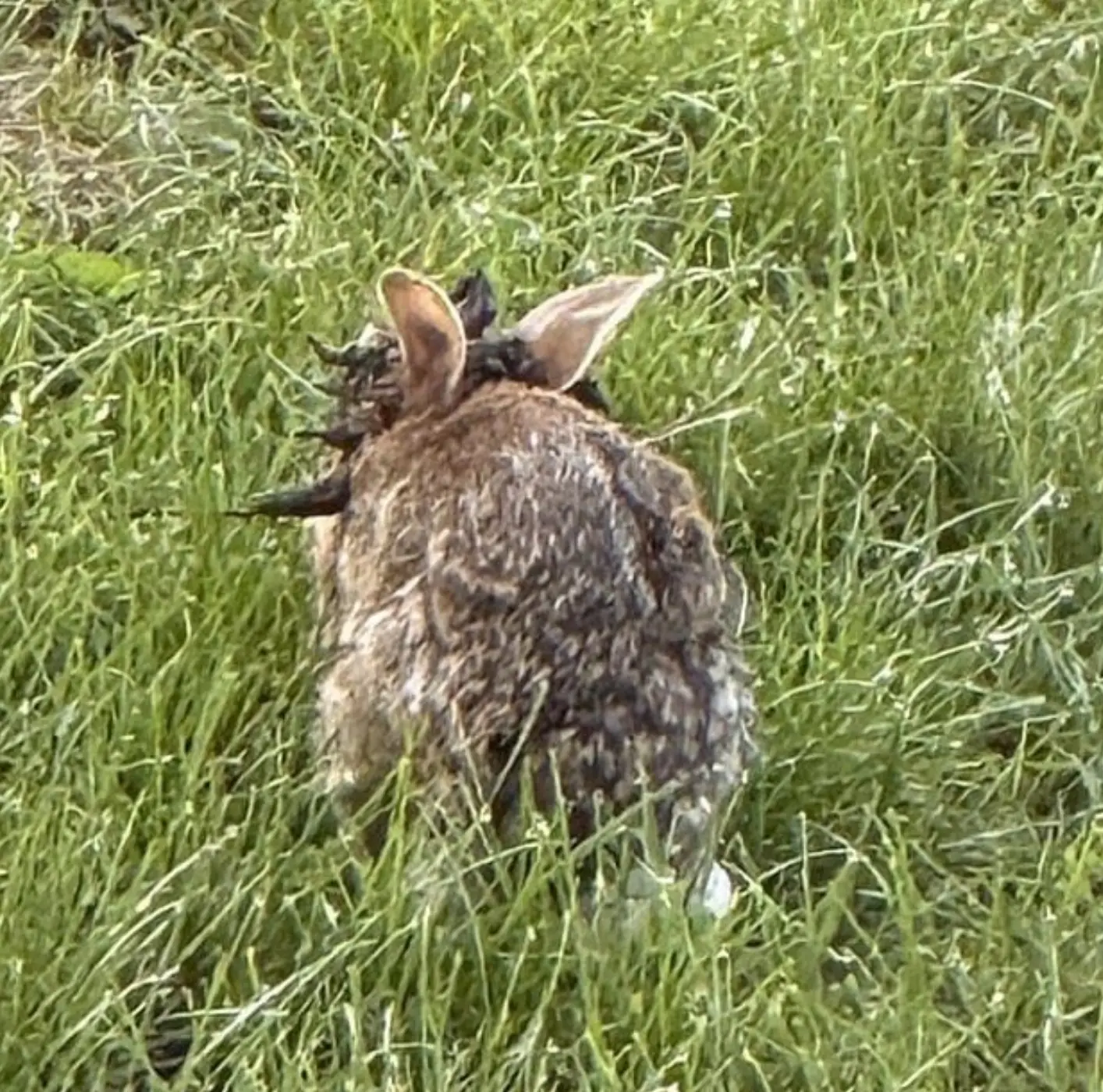
Rabbit owners have been told to look after their pets after a number of 'Frankenstein' bunnies have been spotted in Fort Collins, Colorado.
The terrifying-looking rabbits - comparable with the iconic Halloween character - have been hopping around in residents' gardens with tentacle-like growths on their faces.
Pictures of the wild rabbits have been shared on social media, and people don't really know how to react.
"I would freak out if I saw it irl without knowing what it is," one Redditor said, as another added: "That’s some nightmare/alien/zombie sort of thing."
Advert
Well, it turns out that the not-very-fluffy bunnies have been contracted with something called Cottontail Rabbit Papillomavirus (CRPV), also known as Shope Papillomavirus.
This viral disease, spread by mosquitoes and ticks, typically causes raised, red lesions that can progress into a type of skin cancer known as carcinoma.

Can humans be infected with CRPV?
Michael Branch, a professor of literature and environment at the University of Nevada, told Live Science that 'depending on how severe the disease is in the rabbit, it can look pretty horrendous'.
The good news, for humans anyway, is that we can't be infected with CRPV.
CRPV mostly affects wild rabbits, and most of the time, they 'can survive the viral infection after which the growths will go away', according to Colorado Parks and Wildlife (CPW).
But when it comes to pet rabbits contracting CRPV, they are a lot more likely to suffer.

What can CRPV do to rabbits, both wild and domestic?
Although infection is uncommon amongst domestic pets, there is a much higher chance that the virus can develop into carcinoma.
The 'Viral Infections of Rabbits' study states that pet rabbits are '66 percent to 80 percent' more likely to get cancer from CRPV within an eight to 14-month period.
PetMD also suggests that wild rabbits might not need any treatment if they are infected, whereas pets will need to have the tumours surgically removed.
Shope papilloma virus outbreaks usually take place during the summer and autumn, as pet owners have been urged to keep them inside.
According to Ask A Vet, there are a number of precautions you can take to protect your pet rabbit from CRPV.

How to protect pet rabbits from CRPV:
• Keep infected rabbits separate from wild rabbits and insects.
• Clean and disinfect cages on a regular schedule.
• Prevent scratching of lesions to lower the chance of spreading infection.
• Support recovery after surgery with proper diet, grooming, and pain management.
• Shield rabbits from insects using mosquito screens and tick prevention.
• Keep wild rabbits away from domestic rabbit areas and hay supplies.
• Quarantine new rabbits until you are sure they don’t have any lesions.
"With prompt diagnosis, surgical removal, and preventive measures, most affected rabbits live well. In 2025, alert veterinary attention and owner education can keep these rare lesions from becoming serious," they added.